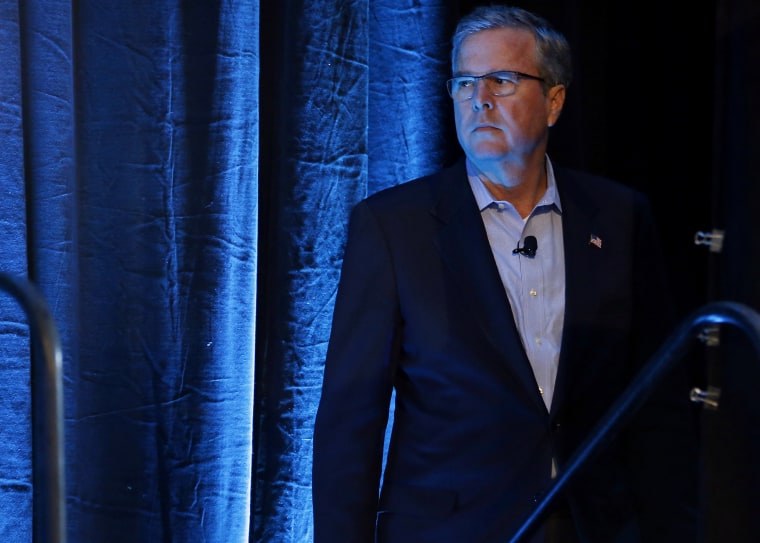As awful as Republican rhetoric became during the debate over health care reform, the "death panel" talking point continues to stand out as a uniquely stupid allegation. The irony of the attack is that it was one of the more bipartisan elements of the entire reform initiative.
The idea was simple: doctors would be reimbursed through the Affordable Care Act for helping guide seniors through their end-of-life care options. One of the idea's more notable champions was Sen. Johnny Isakson (R-Ga.) who explained back in 2010 that having advance directives or a living will "empowers you to be able to make decisions at a difficult time rather than having the government making them for you."
The right didn't care. A certain former half-term Alaska governor started throwing around the phrase "death panels"; some policymakers who knew better embraced the lie; and the worthwhile idea was quietly scrapped, chalking up a victory for mindless propaganda over sensible policymaking. An Obama administration proposal for "voluntary advance care planning" in 2010 was also pulled in the face of right-wing apoplexy.
Given this history, it's kind of amazing to see the debate come full circle.
Jeb Bush, defending his efforts to keep alive Terri Schiavo, a brain-damaged woman, when he was governor of Florida, suggested on Friday that patients on Medicare should be required to sign advance directives dictating their care if they become incapacitated.
Campaigning in New Hampshire over the weekend, the unannounced candidate was asked about his handling of the Schiavo matter. Bush said, looking back, "I don't think I would change anything." Given his decisions during the controversy, that itself is a striking posture.
But Bush added, "In hindsight, the one thing that I would have loved to have seen was an advance directive where the family would have sorted this out.... I think if we're going to mandate anything from government, it might be that if you're going to take Medicare, you also sign up for an advance directive where you talk about this before you're so disabled."
Just so we're clear, my point is not to criticize Bush about his position. On the contrary, he's exactly right on the substance -- when it comes to end-of-life directives, not the Schiavo matter -- and I'm happy to give the former governor credit for ignoring the right-wing garbage surrounding the policy.
But I am curious how we reached this point. Five years ago, conservatives collectively lost their minds about President Obama reimbursing physicians who take some time to talk to Medicare patients about their options. Five years later, there's nary a peep from right about a leading Republican presidential candidate endorsing a requirement in which the government forces Medicare patients to complete an advance directive?
If the political world has matured on this point since 2010, I'm delighted. If we can finally have a sensible policy discussion about end-of-life care without unhinged gadflies trying to scare people into believing nonsense, it's long overdue.
But can we at least pause to appreciate the fact that Jeb Bush's position represents "big government" more than Obama's policy ever did -- and this time, no one's screaming about it?
